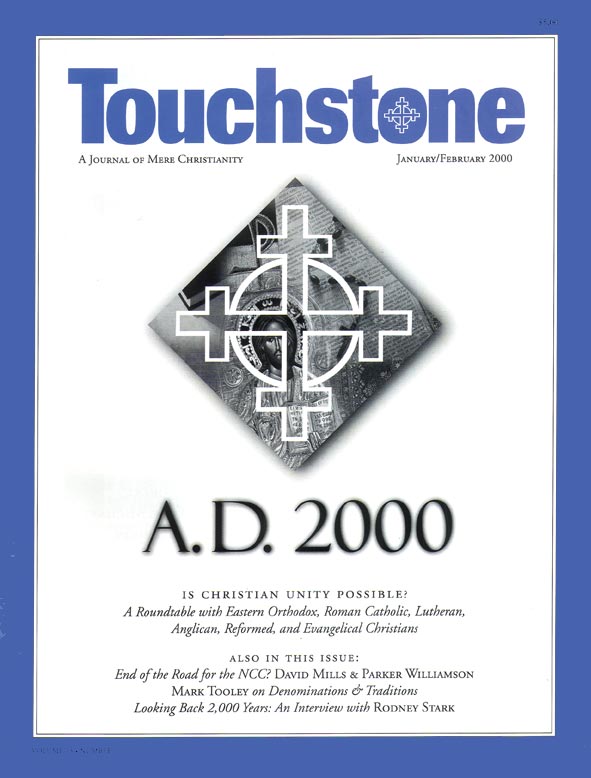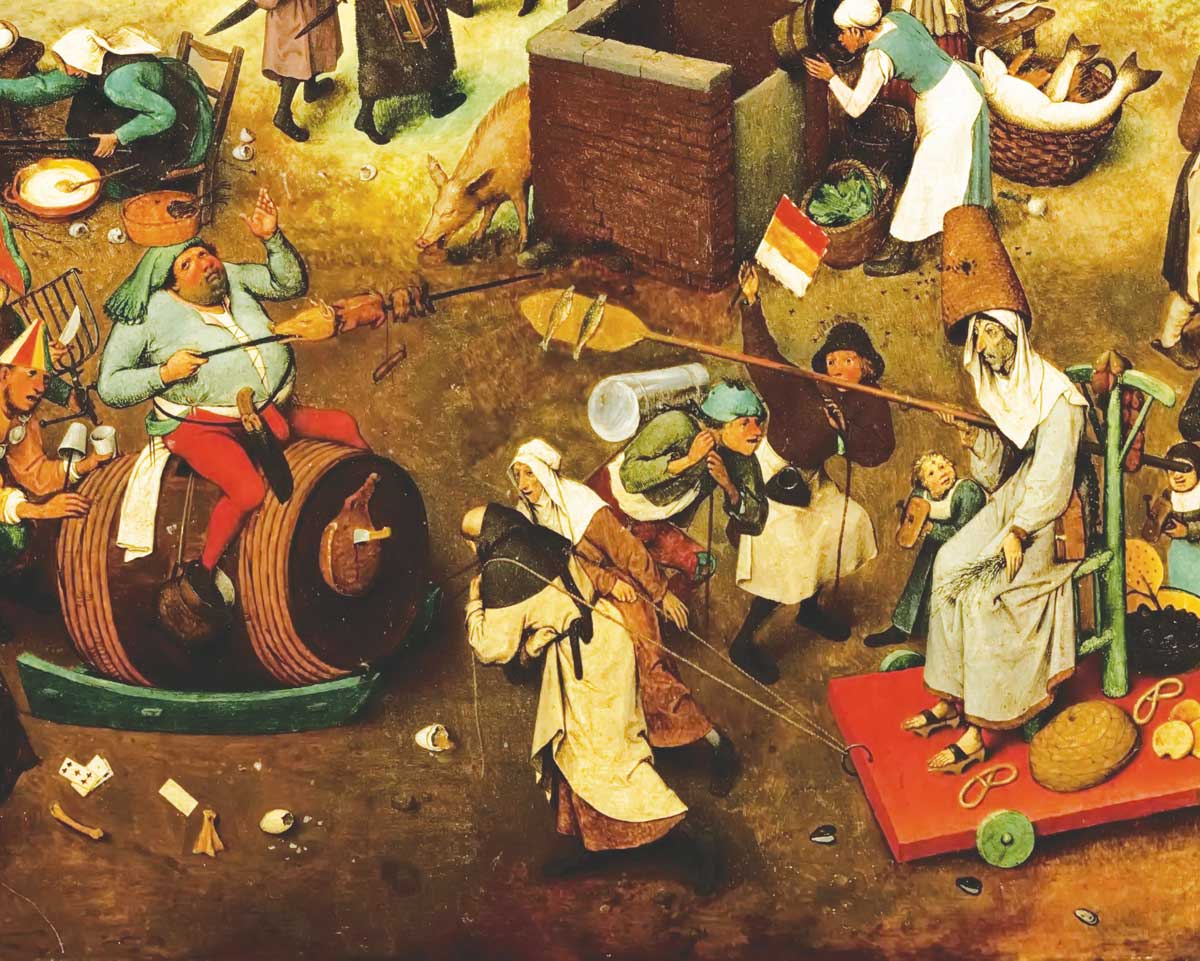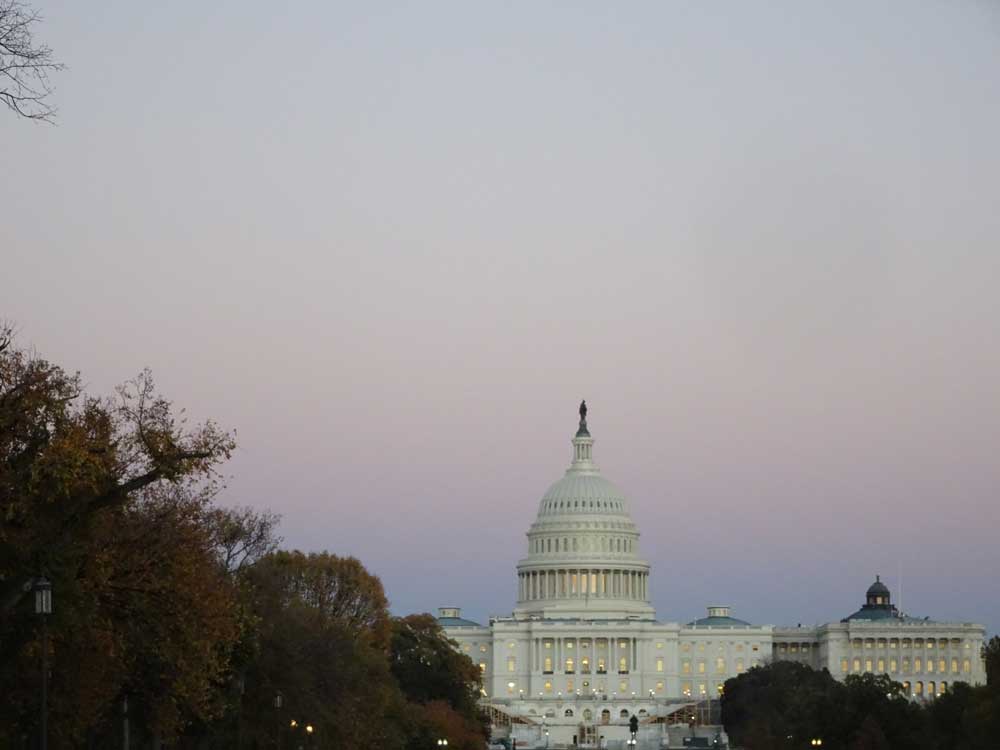The Self-Destruction of the NCC
The National Council of Churches (NCC) is very sick, and perhaps dying. According to Richard Ostling, writing for the Associated Press, as the NCC celebrates its fiftieth birthday, it has reached “a historical low point.” The people who worry about such things worry that it might not survive.
It is less and less important even to its own people: only 757 people registered for its fiftieth anniversary conference, of an expected 2,000 (a figure one suspects was a cautious one in the first place). More pressing, it is losing money: the mainline Churches that have funded it for so long are cutting back their contributions, and it faced a deficit of almost $4 million just this year. Even the Methodist Church has stopped giving it money, and, reports its chief ecumenical officer, not one member complained. Its finances are a mess, and its stewardship does not inspire confidence even in its friends. The council not only spent $750,000 on its own birthday party but also hired a consulting firm to help them restructure the organization, expecting to spend $750,000, and got a bill for $2.5 million. And of course its theology was reliably liberal, in a bland and uninspiring sort of way: one visitor noted that though the language from the podium was always “theocentric,” “we were welcomed as ‘people of God’ who were on a mission to ‘impact the world’ for God (not ‘him,’ just ‘God’).”
Inevitable Irrelevance
Its decline was predictable. Groups that began life in the Pelagian utopianism of America after the war, thinking that human problems would be solved with enough energy and organization and goodwill and assuming that simply getting people together would work wonders, that have no market to control them, that lack members who actually believe something (the Evangelicals and the Roman Catholic Church do not belong), and that receive money and goodwill simply for existing, will eventually bloat into irrelevance. You do badly when you believe that you are doing God’s work and no one asks you to explain what you are doing or to account for how you are doing it.
In response to the exposure of the NCC’s problems, the retiring general secretary, the Reverend Joan Brown Campbell, declared that “we need to have a new structure.” She believes that “all this,” meaning the inescapable problems, “will result in something quite new.” Ecumenism “doesn’t have to exist in this form. Unity is among us, and nobody will be able to stop it. How this expresses itself is another question.”
She responded as liberal activists faced with inescapable evidence of their failure always do. (Though, to be fair, without the usual blaming of conservatives for failing to help bring in the Kingdom.) The problem isn’t their project, or how they pursued it; the problem is that the times have changed. They do not apologize or repent, and one assumes that they believe that they have been so busy doing good that they were simply ambushed by history. The solution they offer is always a new structure, and though they never describe its actual character, one is certain that it will look as much like the old organization as possible. Their work, they always claim, must go on, and it will go on, because history demands it.
I read the Associated Press and other stories from a certain distance: as a husband and father, living in a working-class suburb of a midwestern city, attending a small parish of one of the mainline churches that support the NCC, who works at one of that church’s seminaries, though one uninterested in the NCC’s projects. The life or death of the NCC would seem to have no effect on my life or on things I care about. The new council Ms. Campbell desires would matter no more to me than the closing of the Elks Lodge in the next town and its replacement by the Rotarians.
But would it? Does it matter if the NCC lives or dies? I think it does, and that it would be best if it dies.
Would It Matter?
“Recent pronouncements from council leaders,” Ostling reported, “have favored universal health care, affirmative action, gun control, bilingual education and the nuclear test ban; and opposed the Senate trial of President Clinton, the Kosovo bombing, religious school vouchers and the economic embargoes of Iraq and Cuba.” Though one regrets the predictable liberalism of its political pronouncements, indicating as it does the absence of a real mind in the NCC—surely there must be some question its leaders would answer differently than the editors of the New York Times—the positions Ostling listed are ones that thoughtful Christians might take. (I agree with them on the bombing of Kosovo and the embargoes of Cuba and Iraq).
But Ostling left out the council’s most egregious pronouncement: its significant silence on abortion, the one current issue on which a Christian organization must speak. Silence on this horror means consent. This last explains why, whatever good the council may do (if it does any actual good, a point I will not grant without close examination), its dissolution ought to be prayed for.
David Mills has been editor of Touchstone and executive editor of First Things.
bulk subscriptions
Order Touchstone subscriptions in bulk and save $10 per sub! Each subscription includes 6 issues of Touchstone plus full online access to touchstonemag.com—including archives, videos, and pdf downloads of recent issues for only $29.95 each! Great for churches or study groups.
Transactions will be processed on a secure server.
more from the online archives
calling all readers
Please Donate
"There are magazines worth reading but few worth saving . . . Touchstone is just such a magazine."
—Alice von Hildebrand
"Here we do not concede one square millimeter of territory to falsehood, folly, contemporary sentimentality, or fashion. We speak the truth, and let God be our judge. . . . Touchstone is the one committedly Christian conservative journal."
—Anthony Esolen, Touchstone senior editor











